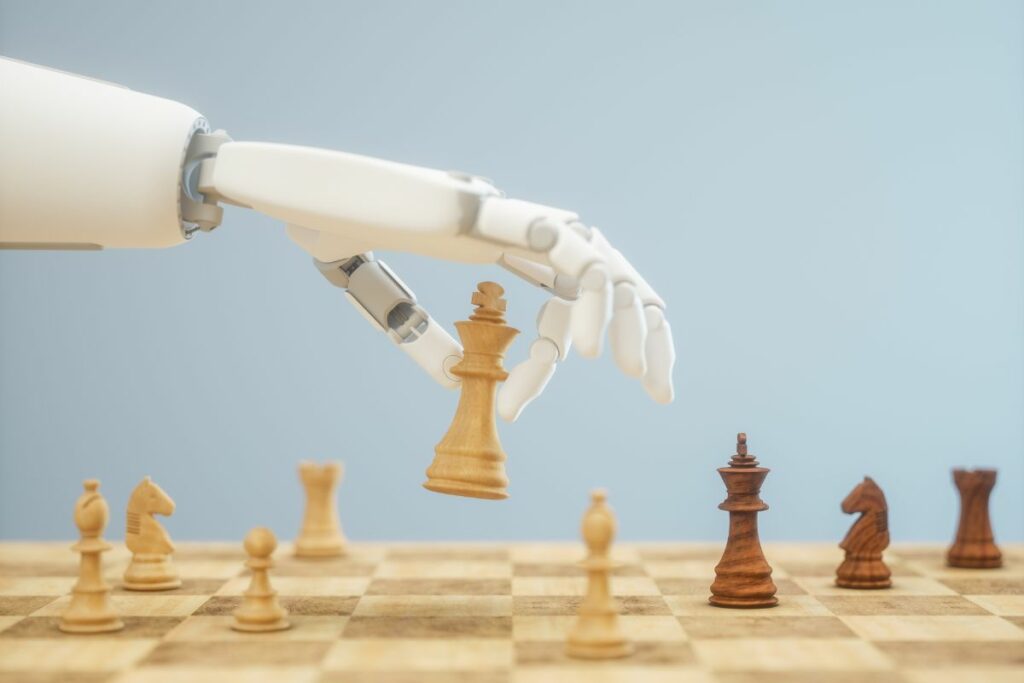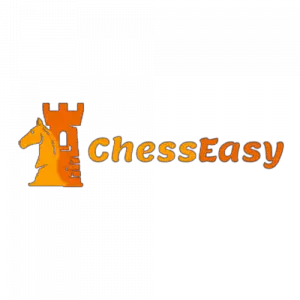
In the realm of board games, none have captivated the human mind quite like chess. For centuries, it has been the ultimate test of strategic prowess, challenging our intellect and creativity.
However, with the rise of artificial intelligence (AI), chess is now being reshaped and challenged.
The question that looms large in the minds of chess enthusiasts and experts alike is, “Is chess solved by AI?”
Chess is not solved by AI, as it has not determined the perfect strategy for every possible position that will result in a guaranteed win or draw. However, AI chess engines can analyze positions and predict moves, using algorithms and extensive databases, with some limitations.
Keep reading to learn more about what it means for chess to be solved and how AI changed chess.
Is Chess Solved by AI?
Chess is not solved by AI, at least not fully. For chess to be considered “solved,” it means that there exists a computer program or algorithm capable of determining the outcome (win, loss, or draw) of any possible position on the chessboard, assuming perfect play by both sides.
In other words, every conceivable move and countermove in chess would be known, and the result of the game from any starting position could be predicted with certainty. This level of solution goes beyond just playing at a high level; it means complete and exhaustive knowledge of the game’s possibilities.
So, while various AI chess engines, such as Stockfish and AlphaZero, have reached superhuman levels of play, they are not advanced enough to solve the game entirely.
How Has AI Progressed in Chess?
The history of AI and chess is a fascinating journey that has marked significant milestones in the development of artificial intelligence.
Here’s a brief overview:
- The Emergence of AI Chess Engines: The story begins with the emergence of chess engines like Deep Blue in the late 20th century. These early AI systems laid the foundation for the grander chess AI endeavours to come.
- Deep Learning and Neural Networks: Advancements in deep learning and neural networks have propelled AI chess engines to new heights. Programs like AlphaZero have shown unprecedented mastery over the game.
- The Role of Machine Learning: Machine learning algorithms have enabled AI to analyze millions of games, extract patterns, and make decisions with human-like intuition. This revolution has led to groundbreaking developments in chess strategy.
- Shifting Balance between Humans vs. AI: The traditional rivalry between humans and machines has evolved into a collaborative partnership, where AI assists human players in honing their skills.
Recommended post: Can Magnus Carlsen beat Deep Blue?
How Do AI Chess Engines Work?
AI chess engines rely on a combination of sophisticated algorithms, powerful computing hardware, and extensive databases to play chess at a high level.
These engines have various remarkable capabilities including:
- Superhuman Play: AI chess engines consistently play at a superhuman level, surpassing even the greatest human players.
- Deep Analysis: AI engines can analyze positions deeply, evaluating millions of positions per second. This allows them to uncover tactical and strategic subtleties that human players might miss.
- Endgame Mastery: AI excels in endgames, ensuring precise play in complex endgame scenarios. This has improved endgame technique and helped players convert advantages into wins.
- Opening Preparation: AI engines are invaluable for opening preparation. They can analyze and suggest improvements in opening lines, helping players stay ahead in opening theory.
- Learning Tool: AI has become an essential tool for chess learning. Players of all levels can use AI to analyze their games, uncover weaknesses, and work on specific aspects of their play.
What Are the Limitations of AI in Chess?
While AI has made remarkable progress in chess, it still has several limitations:
- Lack of Intuition: AI lacks human-like intuition and creativity. It may struggle to recognize unconventional or strategically complex positions that human players excel in.
- Hardware Dependency: Top-level AI chess engines require substantial computational resources, including powerful CPUs and GPUs. This dependency on hardware limits access for casual players and can be costly.
- Complexity Mismanagement: In extremely complex positions, AI engines may misjudge the evaluation due to horizon effects, where they cannot see deep enough into the position to accurately assess its potential.
- Opening Book Dependence: AI engines heavily rely on opening books and historical data, which can lead to predictable play in the opening phase. While this is advantageous for preparation, it can limit creative exploration.
- Lack of Explanation: AI engines often provide move suggestions without detailed explanations. This can be a limitation for players who want to understand the “why” behind a move.
- Human Disconnect: Overreliance on AI analysis can disconnect players from the joy of exploring and learning from their own mistakes and discoveries. It can make chess less about the journey of improvement and more about following computer-generated moves.
- Ethical Concerns: The use of AI in chess raises ethical concerns, such as potential cheating in online games and the blurring of lines between human and computer play in tournaments.
What Are the Best AI-Powered Chess Engines?
Here are some of the top AI-powered chess engines:
- Stockfish: Stockfish
 has long been regarded as one of the strongest open-source chess engines. It uses brute-force search combined with advanced evaluation functions and is known for its incredible strength and deep analysis.
has long been regarded as one of the strongest open-source chess engines. It uses brute-force search combined with advanced evaluation functions and is known for its incredible strength and deep analysis. - AlphaZero: Developed by DeepMind, AlphaZero
 gained fame for its remarkable performance and innovative approach. It learned to play chess through self-play and went on to defeat Stockfish in a highly publicized match. AlphaZero’s neural network-based approach has inspired further research in AI and chess.
gained fame for its remarkable performance and innovative approach. It learned to play chess through self-play and went on to defeat Stockfish in a highly publicized match. AlphaZero’s neural network-based approach has inspired further research in AI and chess. - Leela Chess Zero (LCZero): LCZero
 is an open-source chess engine, like AlphaZero, that uses neural networks for evaluation. It’s known for its strong and creative play, making it a favourite among chess enthusiasts.
is an open-source chess engine, like AlphaZero, that uses neural networks for evaluation. It’s known for its strong and creative play, making it a favourite among chess enthusiasts.
Conclusion
In conclusion, the question of whether chess is solved by AI remains open.
While AI has made astounding strides in chess, it has not definitively solved the game in the traditional sense.
Chess continues to challenge AI’s limits and inspire humans. Ultimately, the future of the game lies in the exciting collaboration between human ingenuity and AI’s computational power.
